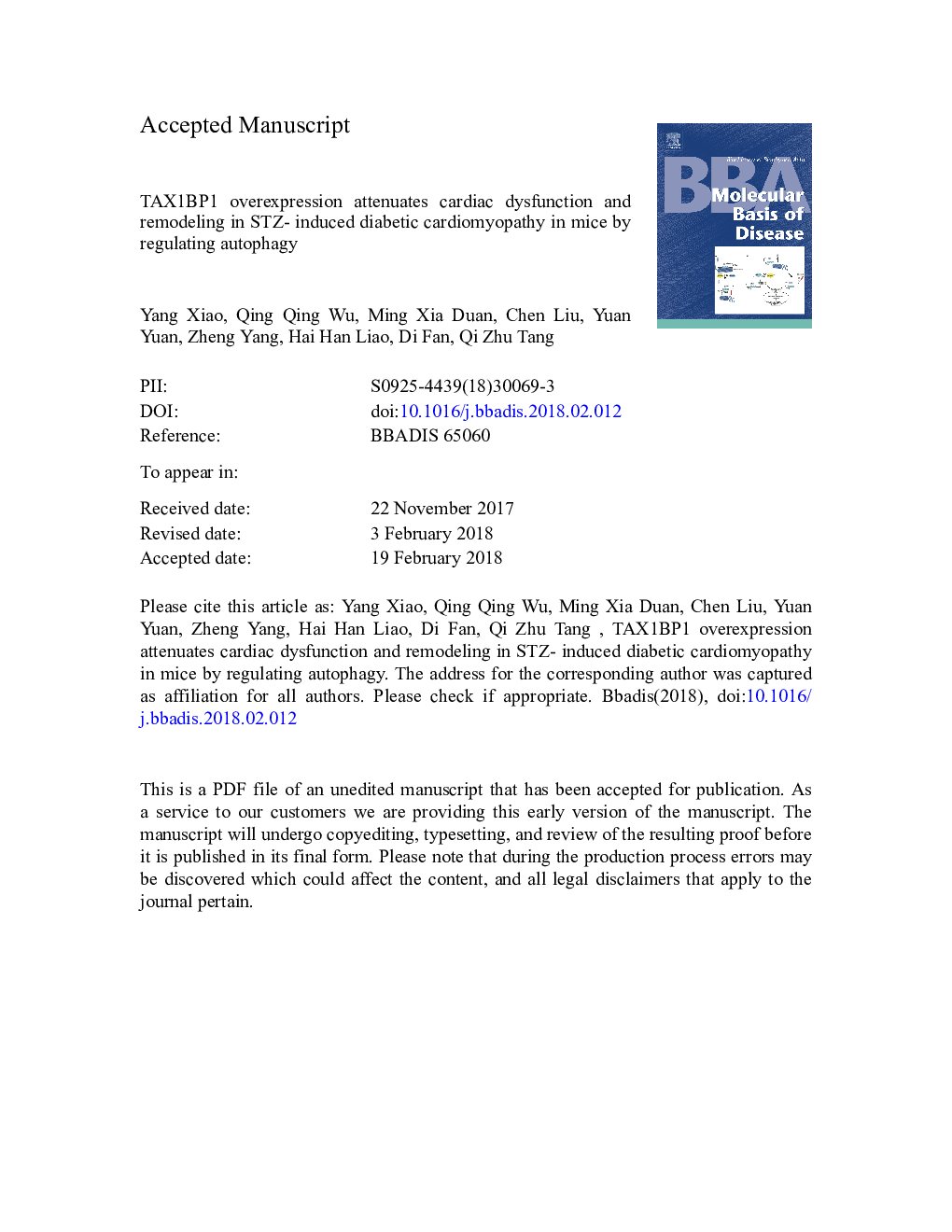| Article ID | Journal | Published Year | Pages | File Type |
|---|---|---|---|---|
| 8258474 | Biochimica et Biophysica Acta (BBA) - Molecular Basis of Disease | 2018 | 42 Pages |
Abstract
TAX1BP1 expression was significantly decreased in STZ-induced diabetic mouse hearts. TAX1BP1 overexpression in the heart alleviated cardiac hypertrophy and fibrosis, attenuated inflammation, oxidative stress, and apoptosis, and improved cardiac function in STZ-induced diabetic mice. Diabetic mice exhibited decreased autophagy. By contrast, increased autophagy was observed in diabetic mice overexpressing TAX1BP1. TAX1BP1 overexpression promoted autophagic flux, as demonstrated by increased LC3-RFP fluorescence in vitro. Furthermore, the autophagy inhibitor 3-MA abolished the protective effects of TAX1BP1 in vivo. Interestingly, we found that TAX1BP1 increased autophagy via the activation of a non-canonical NF-κB signaling pathway. Conversely, RelB knockdown disrupted the protective effects of TAX1BP1 in cardiomyocytes. TAX1BP1 thus restores the decreased autophagy level, leading to decreased inflammatory responses and oxidative stress and reduced apoptosis in cardiomyocytes.
Keywords
Related Topics
Life Sciences
Biochemistry, Genetics and Molecular Biology
Ageing
Authors
Yang Xiao, Qing Qing Wu, Ming Xia Duan, Chen Liu, Yuan Yuan, Zheng Yang, Hai Han Liao, Di Fan, Qi Zhu Tang,
